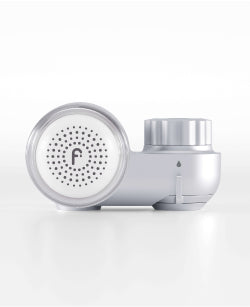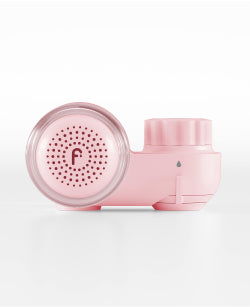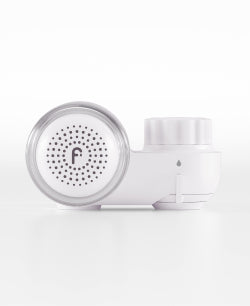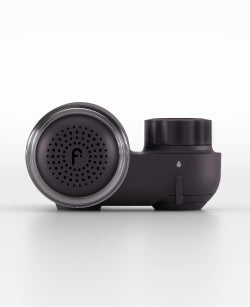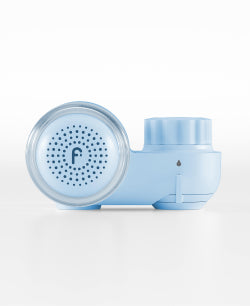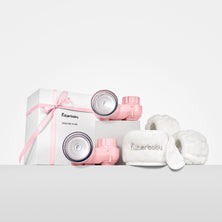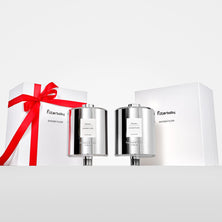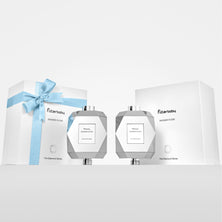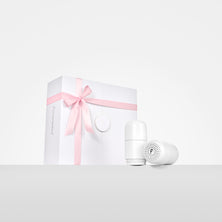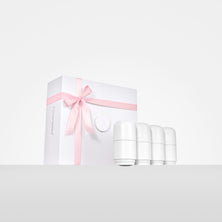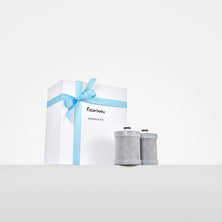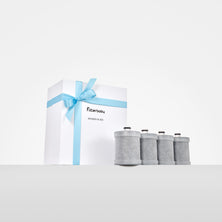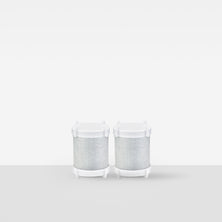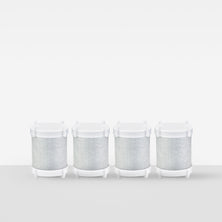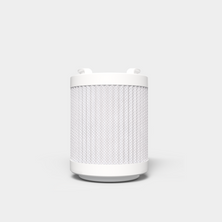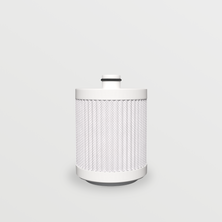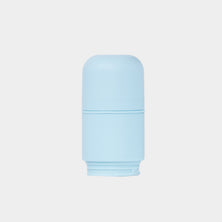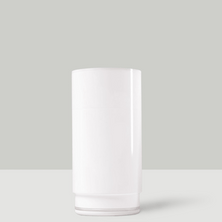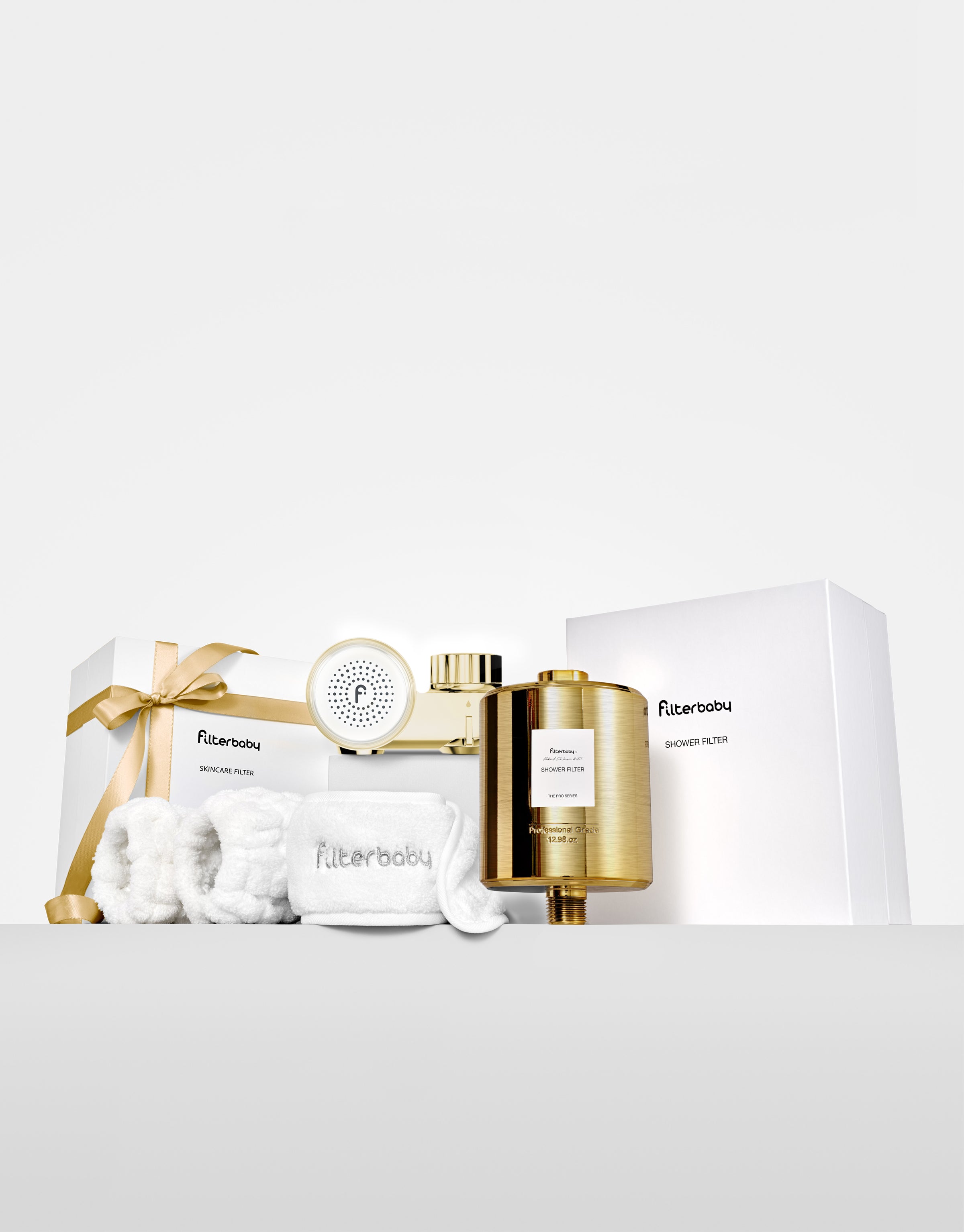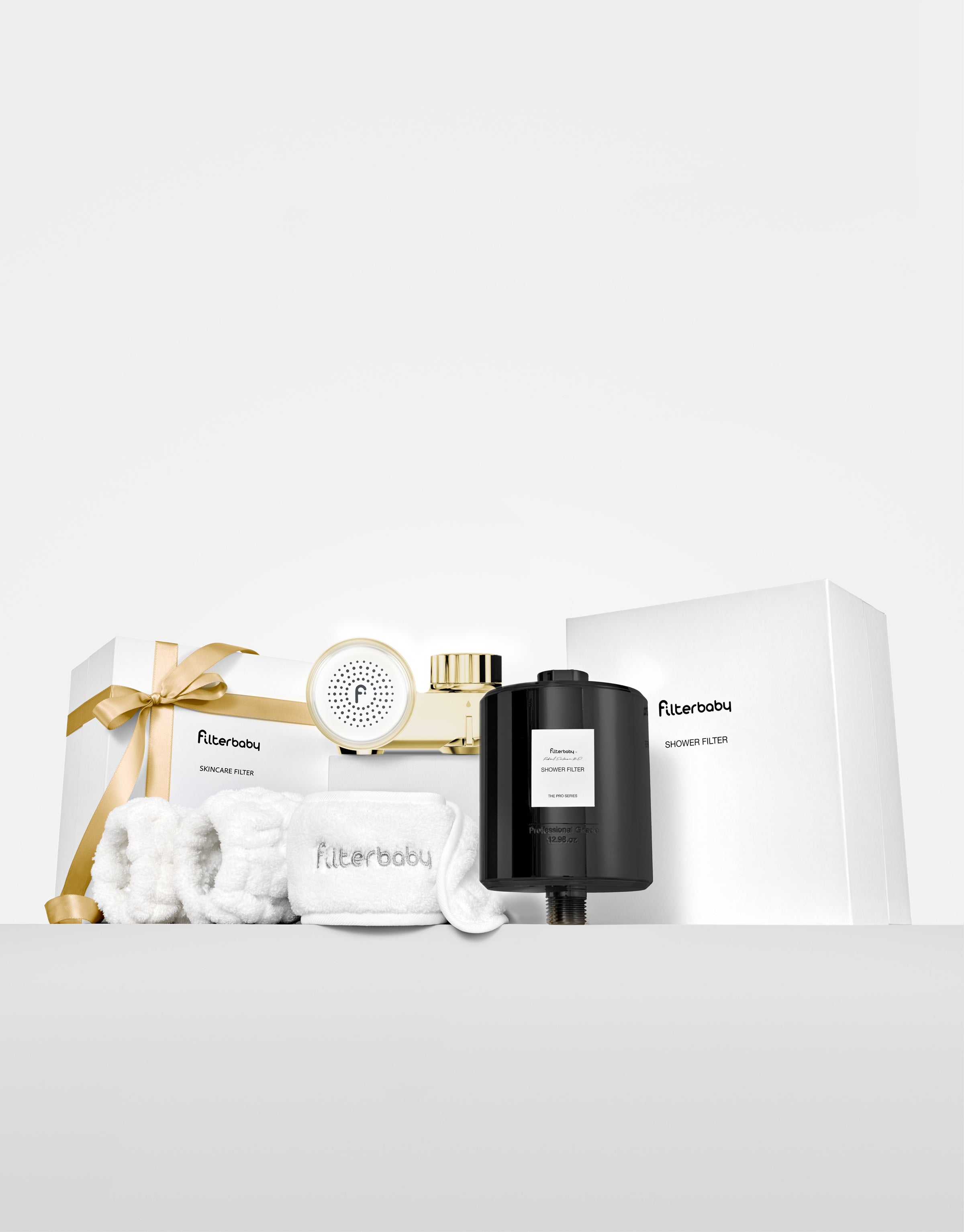Written by: Dr. Devin Reese. Ph.D
Bachelors in Ethology (Animal Behavior), Harvard
Ph.D. in Integrative Biology (Ecology), U.C. Berkeley
How Tap Water is Damaging Your Skin
Have you ever thought about whether your water may be affecting your skin? Our skin is the vital barrier that protects our bodies for a lifetime—our first line of defense from contaminants, dehydration, injuries, and infectious agents. Our environments take a toll on our skin; daily sun exposure reduces its elasticity, pollution, dusts and microbes in the air, excessive makeup and skincare or even water quality diminish skin’s quality over time.
Making a simple change to your skincare regime can help protect it from the ravages of aging: Add a filter to your tap water. A comprehensive filter like Filterbaby provides skincare benefits by removing irritants and contaminants. While Parisian women purportedly wash with bottled micellular water, and Korean women wash with bottled sparkling water, a more affordable but effective solution that generates less waste is a filter that goes right onto your tap.
Washing skin removes impurities, and drinking lots of water keeps your skin hydrated (Palma et al., 2015). However, tap water includes chlorine and many other chemicals that are added during water treatment. While essential for killing water-borne pathogens, chlorine removes natural oils from your skin and your hair. If you have sensitive skin, tap water can exacerbate excema and psoriasis, or even trigger rashes from contact dermitis.
Another problem with chlorine is that when it reacts with organic materials in water, it generates bi-products, most commonly trihalomethanes (THMs) and haloacetic acids (HAAs). You get exposed to these when you drink tap water, absorb it through your skin, or even inhale airborne water vaper. While their impact on skin health is unknown, these biproducts are implicated in birth defects and cancers (Liu et al. 2020, Chowdhury and Champagne, 2015). Filterbaby contains carbon fiber that dechlorinates your water as well as other chemicals, an ultrafine membrane filter to capture the smallest biproduct particles as small as 0.1-0.2 microns. This is an effective filter.
The bottom line is that the water coming out of your tap, while sanitized, may be doing some harm. As your most important environmental barrier, your skin should be treated with care. I would give this filter a try and see if your skin feels a difference and or look at how much particles your filter traps by the end of 3-4 months use.
Sources:
- https://www.water-rightgroup.com/resources/soft-water-hard-water-effects-skin/
- https://www.healthline.com/health/beauty-skin-care/tap-water-bad-for-skin#_noHeaderPrefixedContent
- https://testmywater.org/chlorinated-tap-water-how-it-is-harming-your-skin/
- https://coloradospringsdermatologyclinic.com/info/can-swimming-pool-and-hot-tub-chlorine-harm-your-skin/
- https://capitalwell.com/chlorines-effects-on-skin-and-hair/
- https://www.harpersbazaar.com/uk/beauty/skincare/a32738982/can-tap-water-damage-skin/
- https://edit.sundayriley.com/acne-from-tap-water/
